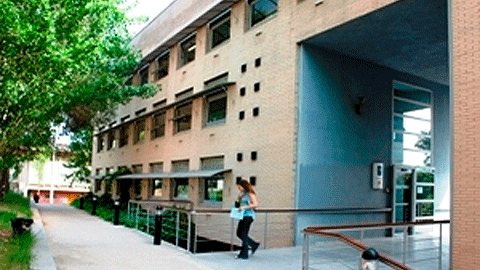The CED celebrates its 40th anniversary with an X-ray of Catalonia's 8 million inhabitants
The Government of Catalonia and the UAB (the two institutions that created the Centre for Demographis Studies in 1984) will hold an institutional event on Monday 12 February at the Palau de la Generalitat and an academic event on Tuesday 13 February at the UAB-Casa Convalescència in Barcelona in celebration of the CED’s 40th anniversary. Pubic authorites and university researchers will analyse the evolution and future of Catalonia now that it has reached 8 million inhabitants, as well as its task as one of the five leading research centres in Europe in the field of demographics.

The academic event to be held on Tuesday will focus on three hot topics affecting the global population: ageing, migrations and family.
The Centre for Demographic Studies (CED) was created on 10 February 1984 as a joint initiative by the Government of Catalonia and the Universitat Autònoma de Barcelona (UAB) and is located on the Bellaterra campus (Cerdanyola del Vallès). Forty years later it has become a leading centre in Europe in the field of demographics and is one of the top five research centres in its field in Europe.
Its research is oriented to disovering and understanding the patterns and trends of demography in the Catalan, Spanish and international context. The centre has been awarded the Narcís Monturiol medal for the promotion of research in Catalonia.
To commemorate its 40th anniversary, the centre is organising an institutional and academic event in Barcelona on 12 and 13 February.
Monday, 12 February at 6 p.m. Auditorium of the Palau de la Generalitat de Catalunya
INSTITUTIONAL EVENT
Attending the event will be the rector of the UAB, Javier Lafuente; the founder and honorary director of the CED, Anna Cabré; the director of the CED, Albert Esteve; the Minister of Research and Universities, Joaquim Nadal.
The director of CED, Albert Esteve, will give the lecture "The Catalonia of 8 million". CED's postdoctoral researcher, Giulia Corti, will present the event, which will feature a musical performance by a duo of ESMUC graduates (double bass and guitar).
Tuesday, 13 February from 9:30 a.m. to 4:30 p.m. UAB-Casa Convalecencia
ACADEMIC EVENT
The academic event will address three burning issues affecting the world's population: ageing, migration and family. Questions such as: What are the main consequences of population ageing? Are we too many migrants? What will the families of the future be like? will be answered. These three topics are the three main lines of research of the CED. For this reason, three emblematic figures of demographic research in these fields have been invited to talk with the centre's researchers, experts in each of the lines:
10-11:30 a.m. AGEING
“Ageing: past, present and future”
To what extent are populations aging around the world, what should we expect in the future, and what are the main drivers and most important consequences of population aging?
On the subject of ageing, the American researcher from the USC Davis School of Gerontology at the University of Southern California (USC) Eileenn Crimins will give a talk on ageing at the international level, followed by CED researcher and demographer Iñaki Permanyer, who will complement it with other data and conclusions.
12-1:30 p.m. MIGRATION
“¿Demasiados migrantes? Migraciones y políticas”
What can demography contribute to the political debate on migration? Migratory crossover in the American and European experience.
On migration, Mexican-born Silvia E. Giorguli Saucedo, sociologist and president of the Colegio de México, will give a talk on the political debate and migration in the Americas, while CED deputy director and demographer Andreu Domingo will focus his analysis on migration in Spain and Europe.
3-4:30 p.m. FAMILY
“Families in the 21st century”
How have our family lives changed in recent decades, and what changes can we expect in the future?
In the field of families, Aart Liefbroer, a Dutch researcher at the Netherlands Interdisciplinary Institute of Demography at the University of Groningen, will explain how he sees the evolution and future of the family as such. Then CED demographer Diederik Boertien will present new data on families in Catalonia.
(Registration is required for all those interested in attending the events.)